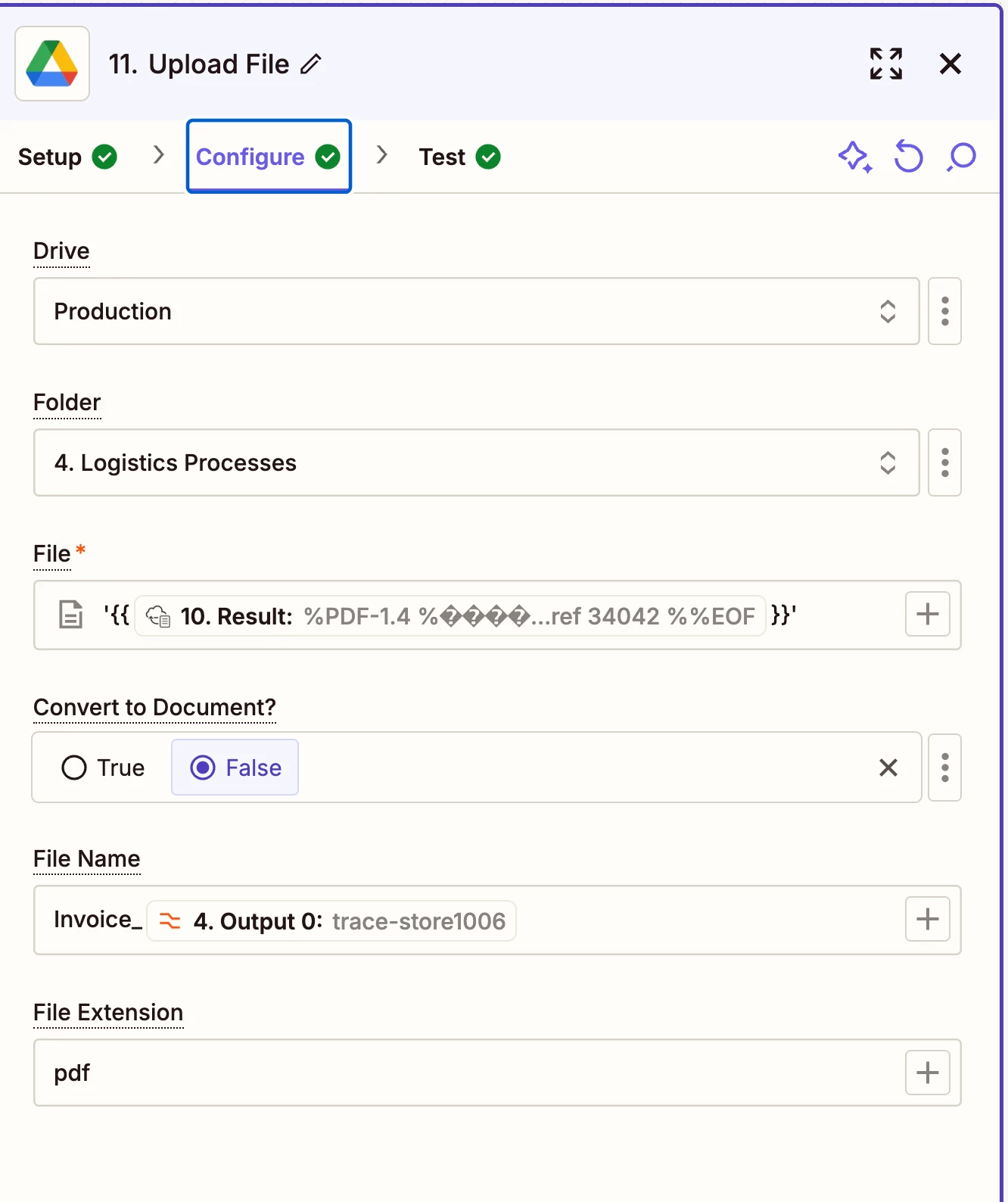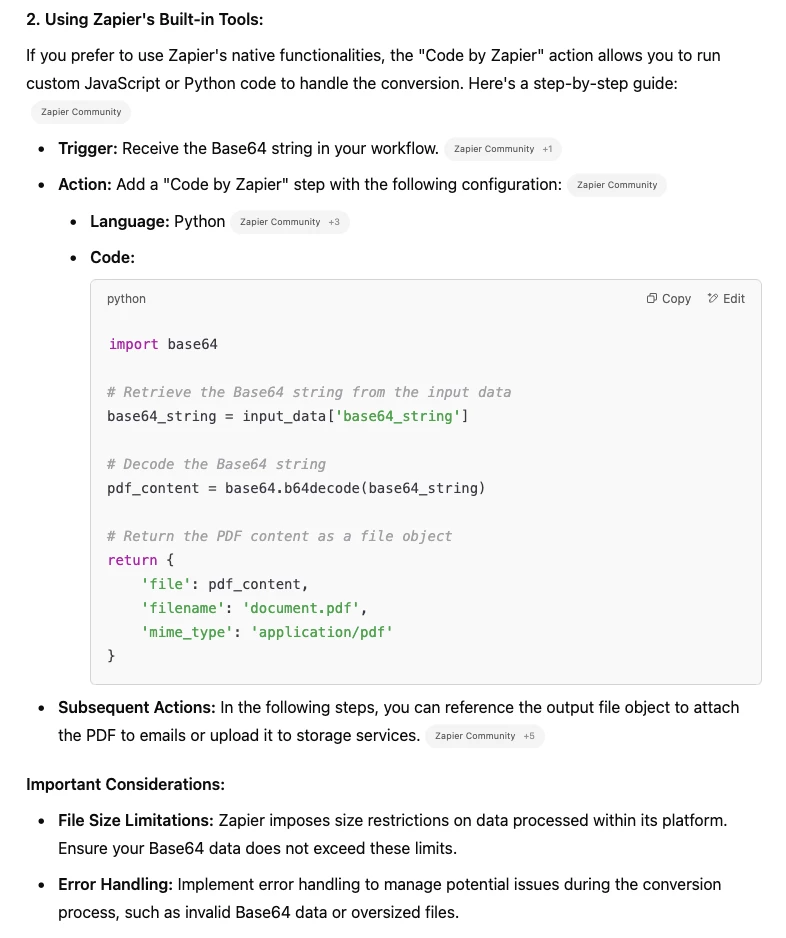Hi everyone,
I'm using a webhook to recieve a .pdf file, which gets send as a base64 string. I'm having a hard time processing this base64 string to a file so I can use it in a “Send Email in SMTP by Zapier” or “Create File From Text” step by Google Drive.
Why I think it should work
I can create a link <a href=”data:application/pdf;base64,{{base64}}">Download here</a> and put it in a .html file, and it will download the file without problems. T hat's why I feel it should be possible to use the file in Zapier in some way.
I've used PDF.CO's (https://pdf.co/tutorials/base64-to-pdf-zapier) Custom API call to create a PDF with the base64 string, which works. But I feel like it should be possible otherwise (without paying €10 per months to download a PDF).
What I have tried so far
I have tried everything mentioned in
and saw someone post a similar quesiton (
) but neither have an answer for me.
I have tried using the “Decode a Base64 String in Base64 Encoder/Decoder” but the decoded string contains cannot handle non-ascii characters, so it will render an empty .pdf. Decoding it using javascript functions (atob) fail to decode the non-ascii characters as well.
I hope someone can help me with this, I've been trying out so many different things, but can't seem to get it working.
Best,
Caspar







